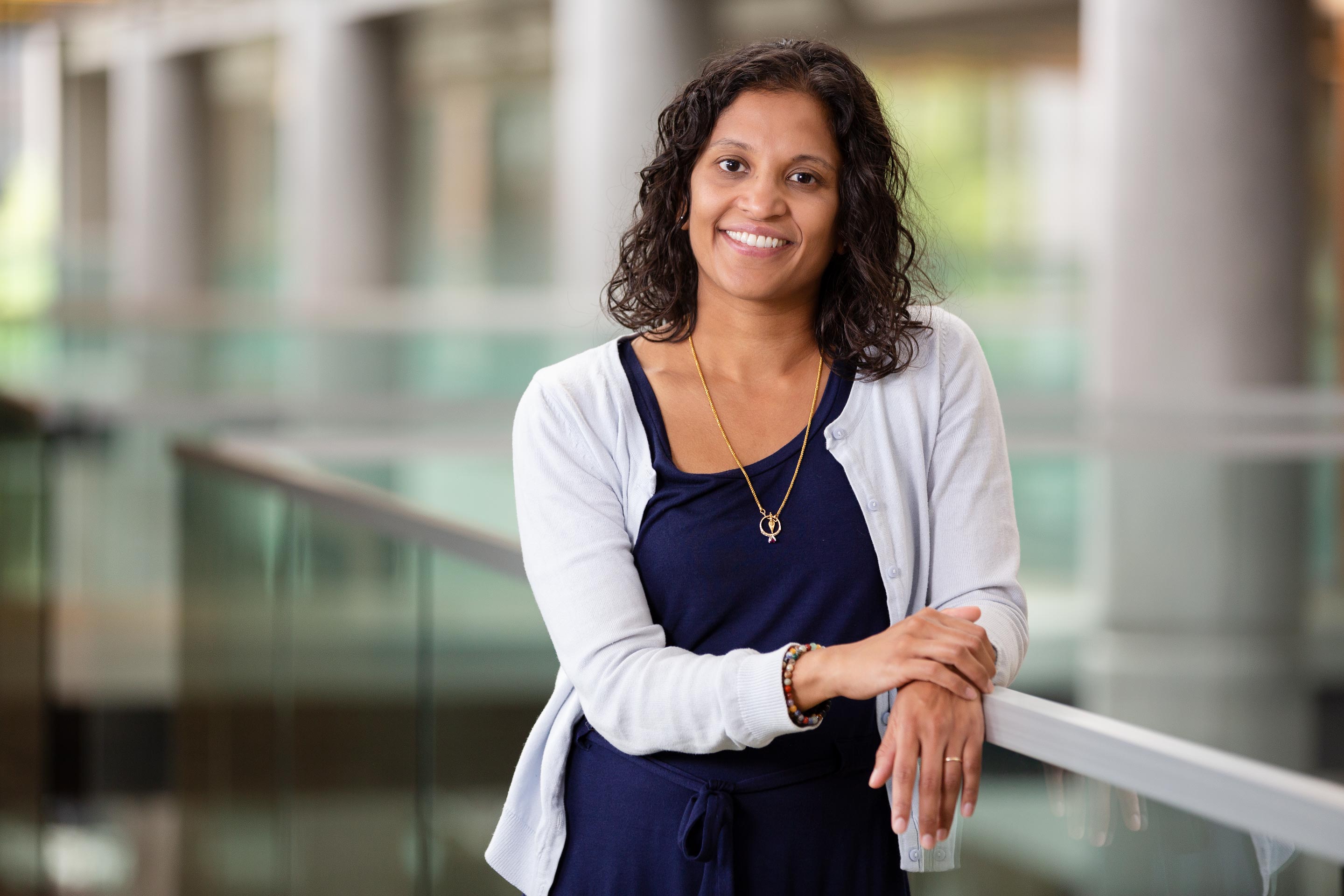Q&A with Dr. Elizabeth Vargis
News Release — Oct. 9, 2019 — Q: What motivated you to pursue a career in biological engineering? What motivates you to stick with it?
A: My father is a mechanical engineer and my mother is a microbiologist. I grew up working with my dad on projects around the house (whether they were necessary or not) and learning about weird diseases and new diagnostic tools from my mom. When I started college, I considered becoming a doctor but found myself more interested in working to make healthcare more effective and accessible. I work on those problems now, making better models of the human eye and developing new methods to easily detect bacteria or biomarkers of cancer.
Hometown: West Hills, CA
Position: Assistant Professor of Biological Engineering
PhD, Biomedical Engineering, Vanderbilt University, 2012
MS, Biomedical Engineering, Vanderbilt University, 2007
BS, Bioengineering, UC Berkeley, 2004
Q: You’ve had a lot of accomplishments early in your career. What have you done to be so successful?
A: Well, I don’t sleep much. But besides that, I’ve done two things. First, I’ve spent a lot of time trying to learn from my mistakes, my failures. It’s hard, when someone points out my shortcomings. But after a period of outrage and disbelief, I work on making my next try better by learning from feedback. Second, I do a lot more work upfront to gauge my potential for success, so I only pursue activities where I believe I can succeed. Doing this has decreased the overall number of opportunities I pursue, while increasing my success!
Q: How did you know when you had found your purpose? Was there an ‘aha’ moment?
A: I’ve had a couple. When I worked at Dr. Shyamala Harris’ breast cancer biology lab in the Lawrence Berkeley Lab after I graduated from college, I was being paid part time, but I found myself in the lab all the time, learning more than I was asked to and working on projects unrelated to mine. It was during that time that I realized that the world of research was for me. I decided to pursue academia, where I could be a researcher and teacher. I am as passionate about those I mentor as I am about my research.
Q: What challenges have you faced as an Indian-American woman in this predominately white, male profession?
A: For me, it’s a lot of microaggressions, like when my white, male, undergraduate TA is mistaken as the professor of the class or when someone says I’d probably prefer teaching the engineering courses that don’t have as much math. Most of the time I think “I’m going to prove them wrong,” but these comments definitely take their toll. Coming home to my kids, who don’t currently have these biases, renews my energy to continue facing these challenges so they will face fewer of them in their careers.
Q: What advice do you have to women who are interested in pursuing a career in engineering?
A: Find a group of women in similar situations who can support you. You can find them in the Society of Women Engineers, other clubs, your dorm, your high school, etc. Find a couple of older mentors, too.
Q: What do you believe is the biggest barrier to females pursuing engineering?
A: A lack of mentorship and role models, which was the basis of my 2016 TEDxUSU talk. Having few female professional engineers makes it hard for incoming female students to believe they can be successful as an engineer.
Q: What do you do to push back on gender biases, and how do you recommend others to do so?
A: I promote myself as much as possible. I keep my website up to date and I’m active on social media professionally. When I accomplish something, I tell my department and college so they can promote it as well.
Q: Why should women pursue careers in engineering?
A: Because we need you! We are trying to solve big problems and we need more ideas and better ideas. You already know about the job security and the compensation. But don’t pursue engineering only because of that. Be an engineer so you can be a problem solver who helps society.
Q: What advice would you offer to your teenage self?
A: Relax a little bit, try new things, and focus on what matters: the things you love doing and the people you love being around. Also, go outside more!
###
Research Contact: Elizabeth Vargis, vargis@usu.edu, 435-797-0618
Writer: Matt Jensen, matthew.jensen@usu.edu, 435-797-8170


